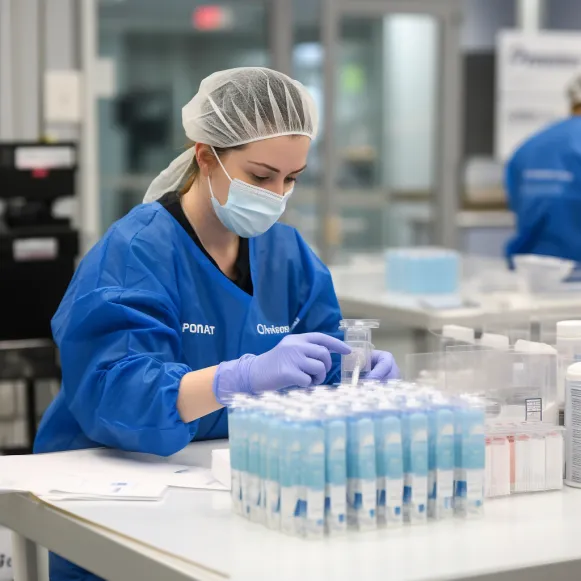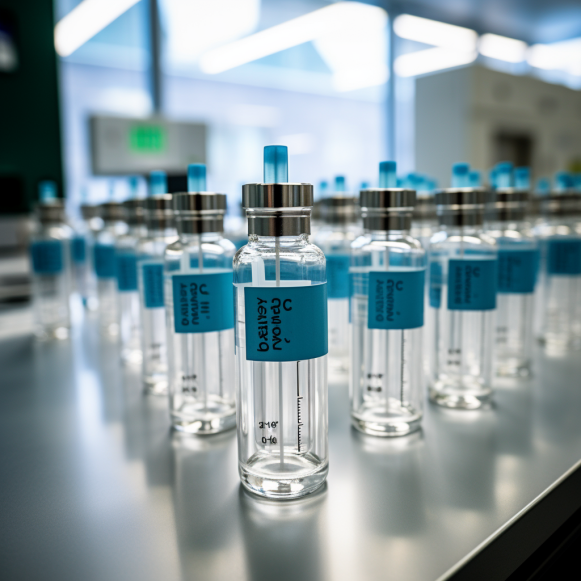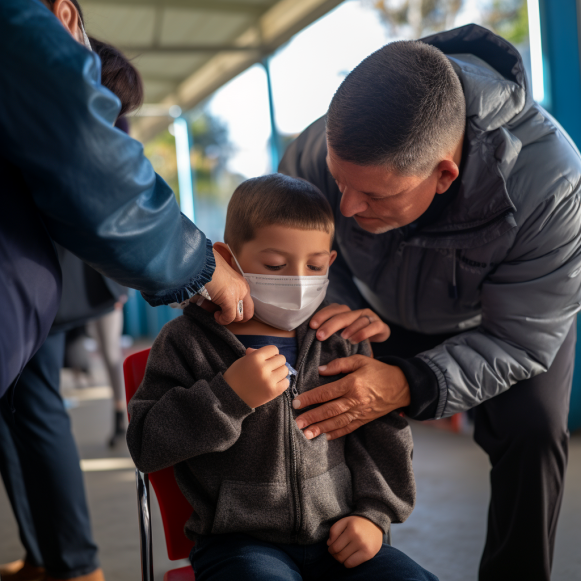Urinary and Prostatic Complications Occur After COVID and Its Vaccines: Studies

Urinary symptoms of incontinence, urinary tract diseases, urinating hesitancy, and frequent urination have all been reported.
COVID-19 infections, as well as COVID-19 vaccines, have been linked to urinary and prostatic complications.
A recent Hong Kong study discovered that among men being treated for baseline lower urinary tract symptoms, those who had a COVID-19 infection had a higher risk of having an enlarged prostate, which can lead to urinary tract infections, urine retention, and hematuria (urinating blood).
“Male SARS-CoV-2 patients are more likely to have worsening LUTS (lower urinary tract symptoms).” The authors concluded, “This association has biological plausibility.”
The presence of SARS-CoV-2 receptors and its superficial spike protein in the prostate “makes it a target for SARS-CoV-2, leading to inflammation and thus these outcomes of interest,” the authors write.
Urinary Complications After COVID or Vaccination
Urinary symptoms of incontinence, urinary tract diseases, urinating hesitancy, and frequent urination have all been reported following COVID infections or vaccination.
Because the urethra passes through the prostate, enlarged prostates can obstruct urine flow, resulting in urinary hesitation, infections, and retention.
The authors of the Hong Kong study reasoned that urinary complications caused by an enlarged prostate are caused by the virus causing inflammation in the genito-urological area. They explain that the SARS-CoV-2 viruses may cause damage by binding to ACE-2 and TMPRSS2 receptors in the testes and prostate. The relatively high levels of ACE-2 expression in male and female reproductive organs suggest that these organs may be susceptible to SARS-CoV-2 infection.
Some doctors believe that the vaccine’s persistent spike proteins are also to blame for the damage. The vaccine’s biodistribution studies have revealed that the mRNA vaccines may segregate in the ovaries and testes, with other studies indicating that the spike proteins may persist for months to years.
The worsening of lower urinary tract symptoms in patients who already have an underlying problem is a common complication. Urinary proteins associated with immune response have been shown to differ before and after COVID-19 vaccination.
Another common side effect of the COVID-19 vaccine is urinary incontinence. Dr. Amanda McDonald, a psychiatrist who has treated hundreds of patients for COVID and post-vaccine symptoms, told The Epoch Times that incontinence is quite common among her vaccinated patients.
“I have had some twenty-something-year-old women with incontinence and they’re just being told that this is normal,” McDonald said. “I have had six, seven women in a row coming in telling me the same story and saying my primary physician sent me here to talk to my psychiatrist because they think it’s all in my head.”
Dr. McDonald has primarily prescribed ivermectin to her patients as a treatment because it can bind to and block spike proteins.
Females are more likely than males to experience incontinence. Other studies looking into urinary symptoms after vaccination have found that females report more side effects than males.
Dr. Keith Berkowitz, an internal medicine physician who has been treating long COVID and post-vaccine patients, believes the urinary incontinence is caused by urinary tract infections caused by a suppressed immune system.
He has been measuring immune cell levels in his patients and discovered that some patients with prior infections or inoculations have abnormally low immune cell counts. Because he did not test their immune levels prior to vaccination or infection, it is unclear whether the immunosuppression was caused by the vaccine or the infection; however, a link remains.
Elevated PSA Level After COVID and Vaccination
SARS-CoV-2 infection and vaccinations have both been linked to a slight increase in prostate serum antigen (PSA), with the third anti-COVID vaccine dose having a greater impact. The clinical significance is unknown at this time, but some doctors, such as Scott Marsland of the Leading Edge Clinic, believe it could be an indicator of prostate cancer.
To screen for prostate cancer, a man’s PSA level is frequently measured using a blood test.
High PSA levels can be a sign of prostate cancer, but there are cancer-free men with high PSA levels just as there are cancer-free men with normal PSA levels.
Mr. Marsland stated that following vaccination, several of his patients who had been in remission for many years developed new-onset prostate cancer. This has not happened for his infected but unvaccinated patients.
He also mentioned that patients with enlarged prostates frequently have urinary urgency, wake up several times during the night, and have some degree of incontinence. “this can be at a really young [age], and it was not something that they had an issue with before they had COVID or before they got vaccinated.”






